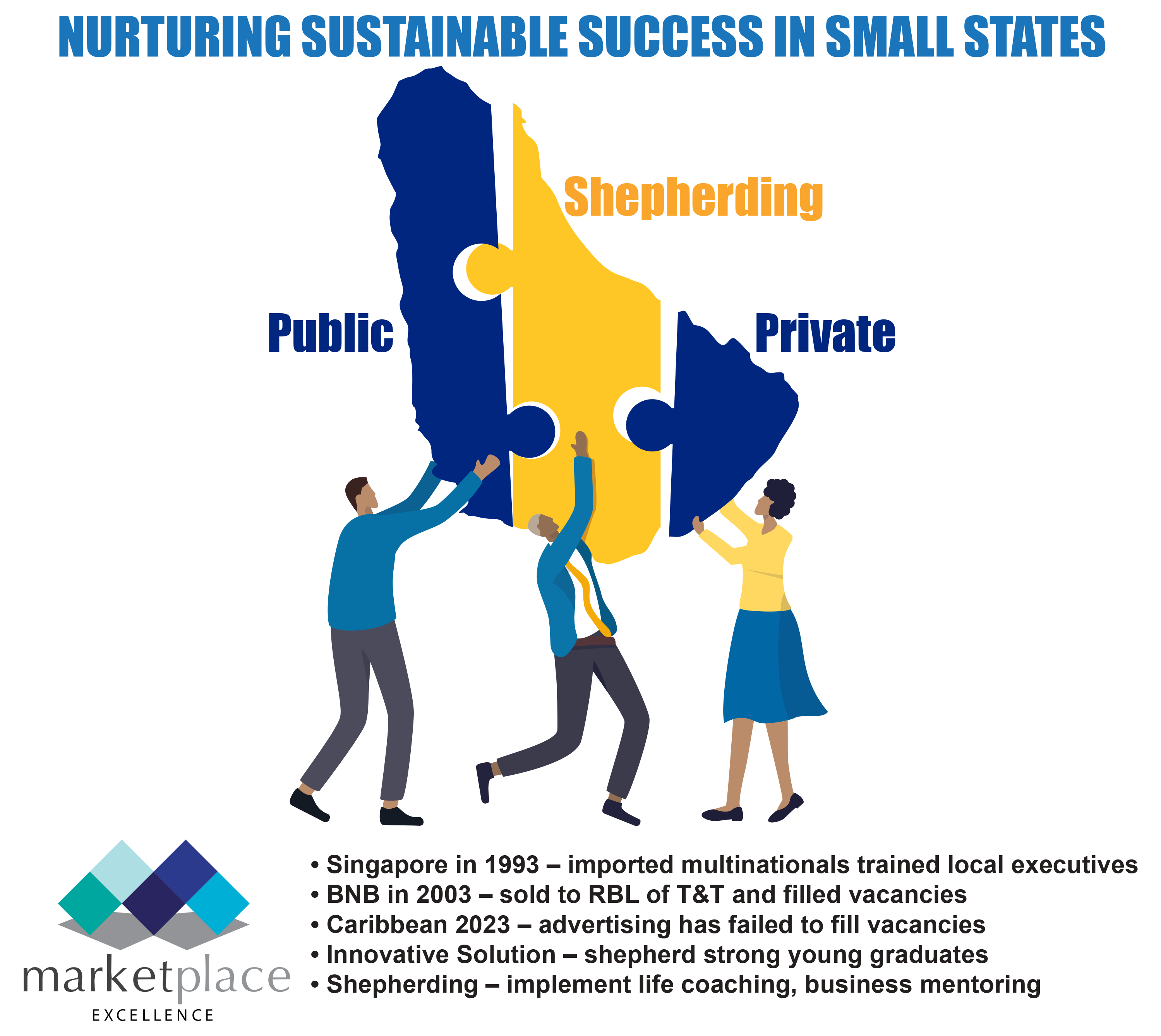“Don’t let anyone look down on you because you are young, but set an example for the believers in speech, in conduct, in love, in faith and in purity.” – 1 Timothy 4:12
The key to sustained economic progress in small states hinges on the dynamism and foresight of their corporate and public sectors.
Two weeks ago we discussed the imperative of corporate and public sector CEO selection and training in small states. Today we extend the concept to their executive teams.
These regions, with their limited resources, must be particularly astute in the ways they cultivate leadership. How then do small nations like those in the Caribbean nurture a class of executives equipped to steer businesses and civil servants towards success, in a manner that supports the larger socioeconomic goals of the region?
The answer, as it turns out, can be found in a blend of history, adaptability and innovation.
In 1993, Singapore, recognizing its dearth of executive talent, did something unprecedented. Rather than solely focusing on importing talent, they opened their doors to multinational corporations to establish operations. In so doing, they facilitated the organic training of their local executives, exposing them to global best practices and cutting-edge management strategies. This move provided the kind of real-world executive education that no classroom could match.
This it did not only for the corporate sector but also for the civil service to the extent that trained executives moved seamlessly between the private and public sectors. And even though their scope of work varied, the salaries and conditions of service were similar.
Fast forward a decade to 2003, and Barbados presents us with another model. The Barbados National Bank (BNB) was faced with a situation where it could not optimally fill five of the top executive positions of the bank. There was a dearth of local talent.
Realizing the importance of amalgamation in an era of rapid globalization, the bank sold the majority of its shares to the larger conglomerate Republic Bank of Trinidad and Tobago (RBL), who immediately assigned individuals already in their network to fill these executive vacancies. As a result, a new stream of executive management emerged in Barbados. This fusion of businesses not only provided an opportunity for the mingling of executive cultures and expertise but paved the way for immediate exponential financial growth of the institution.
Yet, it is 2023, and the Caribbean faces a peculiar challenge. The conventional route of advertising for executive vacancies has, for the most part, failed. The reasons are manifold – from global talent wars to the unique requirements of businesses in smaller states. There’s an apparent mismatch between available roles and suitable talent.
So, how should the Caribbean address this executive conundrum?
Enter the solution: shepherding. No longer is it sufficient to merely recruit. The Caribbean must nurture. The focus should shift from seeking fully formed executives, recruited mainly from abroad, to identifying potential ones. In this, strong young graduates, fresh out of universities, brimming with ambition and a modern outlook, are invaluable assets.
The proposed “Shepherding Model” takes these promising individuals under its wings. But this isn’t just about traditional business mentorship, where an experienced executive imparts industry wisdom to a newbie. Instead, it adds an element of life coaching. This holistic approach acknowledges that the challenges faced by modern executives aren’t just about balance sheets or marketing strategies. It’s also about work-life balance, mental health, societal responsibilities, and personal growth.
By melding life coaching with business mentorship, the Shepherding Model ensures that the Caribbean doesn’t just produce executives who are adept at their jobs, but those who are also well-rounded individuals. Such individuals can navigate the unique challenges of the Caribbean business and civil service landscape while also ensuring they contribute positively to the broader community.
The Shepherding Model, with its blend of business acumen and personal development, might just be the answer the Caribbean is seeking.

(Dr. Basil Springer GCM is a Change-Engine Consultant. His email address is basilgf@marketplaceexcellence.com. His columns may be found at www.nothingbeatsbusiness.com).
